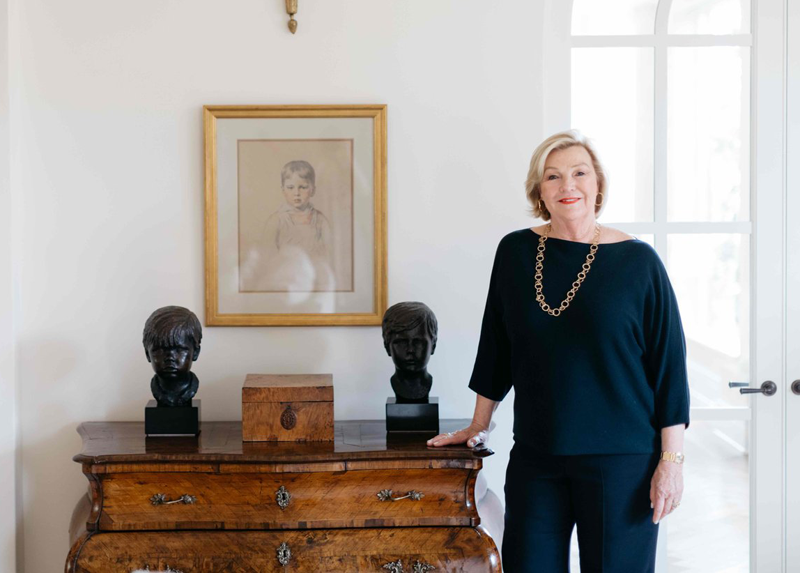How this Insurance Company Competes With Google, Netflix, and Warby Parker for Top Talent
March 30, 2016
By Justin Bariso
Times have changed.
How would you like to work for a company that--in addition to offering a competitive salary and holding a reputation for a great culture--provided the following perks to employees:
- Up to $1,500 per year to put towards a non-work-related passion
- Complimentary Fitbit tracker
- Flexibility to work remotely (if desired)
- Fresh fruit (and other healthy snacks) available throughout the day
- Unlimited time off from work
Interested? Okay, one thing you should know: This isn't a technology company.
It's an insurance company.
PURE (Privilege Underwriters Reciprocal Exchange) is a policyholder-owned insurer that specializes in serving high-net-worth individuals and families. Since its founding in 2006 by a group of insurance professionals, the company has achieved significant growth (at least 40% annually) and now serves more than 50,000 members (policyholders) across the US.
According to PURE, a large reason for their rapid growth is their passionate and engaged workforce.
But at a time when employee engagement remains low, how does an insurance company buck the status quo?
Surpassing Expectations
As time moves ever-forward, employee expectations naturally evolve. In the technology industry, companies like Google and Netflix have set the bar as to what high-performing employees can expect--with perks like healthy (free) food and flexible time off policies the norm nowadays.
But should companies in more traditional industries be looking to provide similar benefits?
Colin Haupt, Vice President of Human Resources at PURE, says yes. Haupt's background may influence his thinking, having previously worked in the technology and media industries. In order to stay relevant with potential young talent, Haupt knew that PURE's perks had to compete with top-tier companies--not just in the insurance space, but in other industries as well.
But Haupt and his team didn't want to just copy those companies; they wanted to innovate.
"We formed an 'employee engagement committee'," says Haupt. "The sole purpose was to develop initiatives that employees loved and ultimately drove high employee engagement." The committee, which is made up of a rotating group of between 10 and 12 persons (previously including CEO Ross Buchmueller), has been instrumental in creating PURE's innovative initiatives.
For example, consider the "Passion Fund" program. This initiative offers employees up to $1,500 every year in tuition reimbursement for a course of their choice. PURE gives employees the freedom to pursue their passions--whatever they may be--resulting in an accredited certification or license.
Employees have tapped passion funding to become certified in photography, tai chi and even racecar driving.
PURE also recognizes the importance of keeping their employees healthy. The company-wide wellness program includes the following:
- Employees can receive a Fitbit tracker in exchange for completing a biometric screening and health survey
- A comprehensive online portal where employees can track their own physical activity and progress
- Smoking cessation and weight loss programs
- Nutritional information and other health programs
The company has even begun a points program that rewards employees for achieving various goals, such as breaking free from smoking, or completing a "10,000 step" challenge within a certain period of time. Prizes include fitness apparel and eventually reduced health insurance premiums (among others).
Flex PTO
In addition, the PURE leadership team decided to replace its traditional paid-time-off program with what they call "Flex PTO". Similar to Netflix, employees have no specified maximum number of days off. It's simply the employee's responsibility to coordinate his or her schedule with the team and appropriate manager. (Any more than three consecutive weeks off also requires approval from senior management.)
Managers view employees as autonomous and able to get their jobs done, building a culture of mutual trust.
Still, the value of unlimited-time-off policies has been questioned by many. Critics claim such policies put added pressure on employees, most of whom aren't taking much time off in the first place. To combat that, PURE requires that employees take a minimum of two weeks off per year.
And again, please remember:
We're talking about an insurance company.
What's the result of all this forward thinking? Early returns look promising. In addition to the company's rapid growth, employee have turned to review website Glassdoor to spread the good word. Current ratings show 92% of employees recommend working at PURE to a friend, and 100% approve of the CEO.
Haupt says that stems from everybody at PURE buying in, from Buchmueller down the line. "Ross has really taken an interest in these initiatives from the beginning," says Haupt.
"We all feel that as PURE grows, it's critical both to preserve and enhance the great culture we've created."
What You Can Learn
If you're a business owner, regardless of which space or industry you're in, the key is to ask: What am I doing for my people now? That's not just an HR issue--all company leaders need to be involved.
Don't aim to just satisfy employees. Aim to make them love you.
Because when you go above and beyond what your own employees expect, they'll be moved to give back. They'll stay longer and act loyally.
Along the way, you'll create an invaluable byproduct, which also happens to be the best brand advocate possible: the happy employee.
Try beating that as a recruitment tool.





